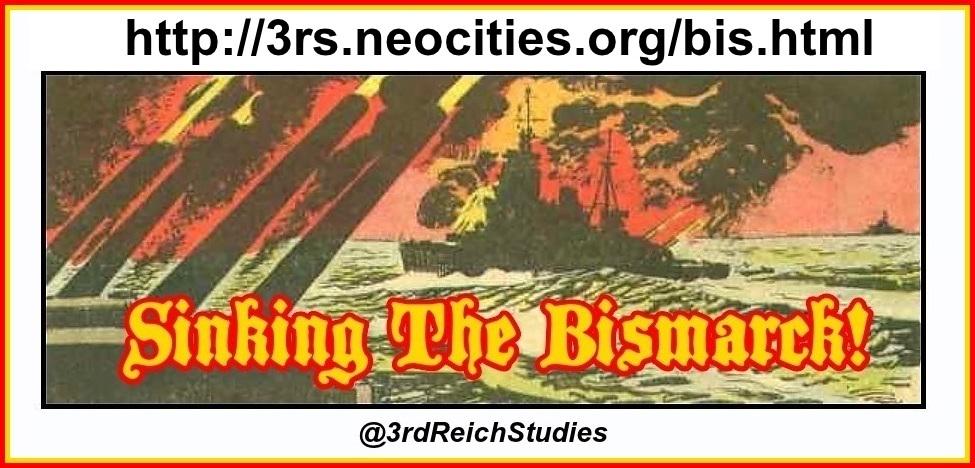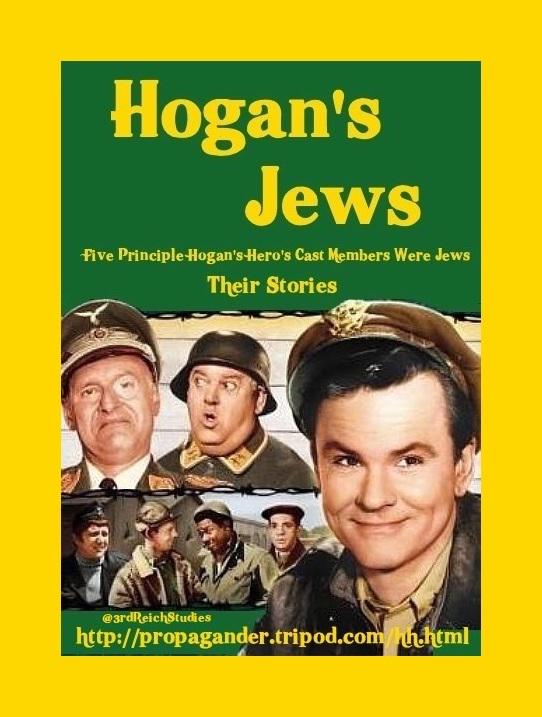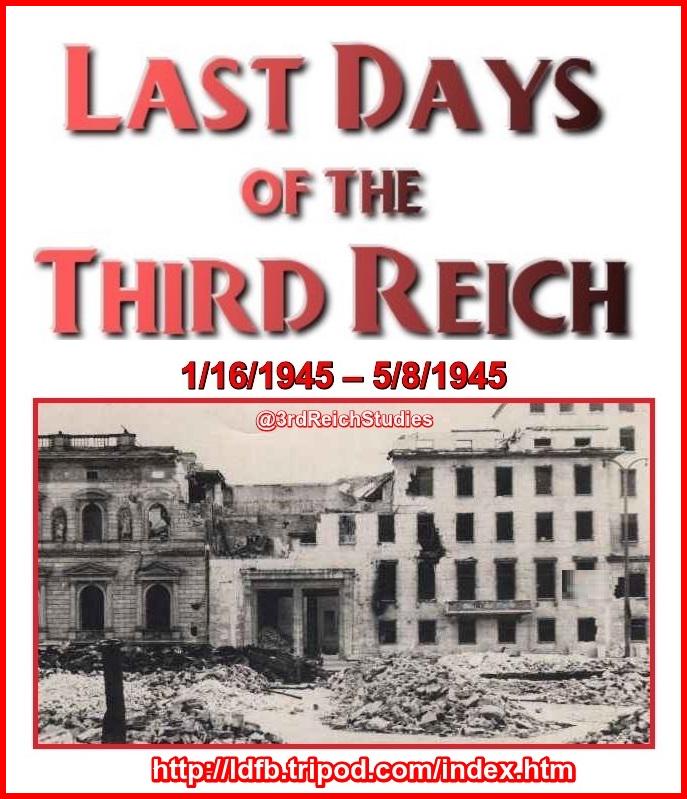The Propagander ™ FAQ
Is Nazi Efficiency a Myth?
The Third Reich wasn't organized for efficiency (It was Mussolini's Italy that was supposedly able to 'make the trains run on time'). The whole 'German Efficiency' thing is a bit of a myth, especially as concerns Hitler's regime. Those who propagate this myth do so without thinking it through. They cite such things as the fact that many of the victims of the Holocaust were accompanied by various forms and detailed listings to demonstrate a high degree of Nazi thoroughness, without pondering sufficiently that bureaucratic documentation is no sign of efficiency, but an indication of the opposite tendency. If everything must be done in triplicate, the aggregate of wasted time involved in such exercises is increased exponentially.
The Third Reich was instead organized in such a way as to ensure that Hitler was the indispensable man, and that no projects or policies could possibly be implemented without his personal intervention at some point in the process. He did this by appointing multiple personages in positions of overlapping authority. This was done so that those in the various positions and ministries would constantly butt up against yet another ministry or agency with similar authority, forcing the competing department heads to go to the Fuehrer to have their actual spheres of authority delineated.
Another advantage of this system is that with all of those who wielded certain amounts of power were constantly at loggerheads with each other. This reduced the chances that cliques would form and that alliances of various paladins could gain more actual power than what Hitler intended they possess, or could collude in opposition to any degree. This ensured that no single minister, or group of ministers, could become too powerful.
For example, Hjalmar Schacht was a financial genius to whom Hitler delegated great power over the Reich economy. However, when Schacht balked at what he considered excessive expenditure for armaments, Hitler appointed Hermann Goering as head of a newly created overlapping agency, the Four-Year-Plan. When Schacht and Goering inevitably came into conflict, they were forced to go to Hitler to settle their territorial disputes. This provided both a check on Schacht's authority, and an opportunity for Hitler to decide priorities and preferences.
During the war, when it proved necessary to expedite the manufacture of war materials and weapons, Hitler created yet another agency to focus on that aspect of the economy, the Ministry for Armaments, which would eventually be headed by Albert Speer. This agency immediately became involved in turf wars with the Four-Year-Plan. To confuse things even further, Hitler appointed Fritz Sauckel as Minister in charge of manpower, a resource which neither Speer nor Goering could accomplish anything without. And these three agencies in turn came into daily conflict with the various Gaulietiers, Saukel as regards manpower, Goering and Speer as regards material resources and facilities, etc.. The records captured by the Allies at the end of the war detail a seemingly endless series of conferences between these various ministers and Hitler, whose role was to decide between them, thus in effect keeping all real power in his own hands.
Consider the many layers of bureaucracy anyone would have to deal with to initiate a necessary project in this environment of multiple authorities. Imagine that you wanted to manufacture a type of land mine desired by the Wehrmacht. You would have to gain approval from Goering's Four-Year-Plan, funding from the Ministry of Economy, the material resources from Speer's Armament Ministry, the land for a manufacturing facility from the ruling Gaulietier, and the manpower for the plant from Sauckel's agency. At some point in this process you would likely have been compelled to seek assistance from Hitler himself, and he would then have an opportunity to judge the merits of your land mine himself. If he approved, the way forward would be made possible. And this is only a partial listing as there was a plethora of other agencies and bureaus one would be forced to satisfy.
I'm getting confused just trying to explain it all!
Examples of the type discussed above were too many to count. What it all came down to was that there was a large degree of waste in the system. When Albert Speer was appointed Armaments Minister, he succeeded in streamlining much of this wasted effort, and was thus able to increase production on a broad range of armaments. Speer's ability to increase the efficiency of armament production by cutting through these layers of wasted bureaucracy made him seem like a miracle worker. However, Speer could work these efficiency miracles only so long as he had direct access to his Fuehrer, as well as his sympathetic favor. When Speer's star began to wain, a noticeable reduction in efficiency resulted, and things were soon back to their inefficient norm.
Saukel experienced much the same dynamic. At first, he was able to greatly increase the amount of labor available to the Reich, but he eventually met the same sort of situations experienced by Speer, with a similar inevitable reduction in efficiency.
Conclusion: Hitler's Reich was certainly organized, but not very efficiently.
 Copyright © 2011-2013
Walther Johann von Löpp
All Rights Reserved
Copyright © 2011-2013
Walther Johann von Löpp
All Rights Reserved
 Twitter: @3rdReichStudies
FB: Horrific 20th Century History
Twitter: @3rdReichStudies
FB: Horrific 20th Century History
























Disclaimer: The Propagander!™ includes diverse and controversial materials--such as excerpts from the writings of racists and anti-Semites--so that its readers can learn the nature and extent of hate and anti-Semitic discourse. It is our sincere belief that only the informed citizen can prevail over the ignorance of Racialist "thought." Far from approving these writings, The Propagander!™ condemns racism in all of its forms and manifestations.
Fair Use Notice: The Propagander!™may contain copyrighted material the use of which has not always been specifically authorized by the copyright owner. We are making such material available in our efforts to advance understanding of historical, political, human rights, economic, democracy, scientific, environmental, and social justice issues, etc. We believe this constitutes a "fair use" of any such copyrighted material as provided for in section 107 of the US Copyright Law. In accordance with Title 17 U.S.C. Section 107, the material on this site is distributed without profit to those who have expressed a prior interest in receiving the included information for research and educational purposes. If you wish to use copyrighted material from this site for purposes of your own that go beyond 'fair use', you must obtain permission from the copyright owner.


 Copyright © 2011-2013
Walther Johann von Löpp
All Rights Reserved
Copyright © 2011-2013
Walther Johann von Löpp
All Rights Reserved
 Twitter: @3rdReichStudies
FB: Horrific 20th Century History
Twitter: @3rdReichStudies
FB: Horrific 20th Century History




Copyright © 2011-2013 Walther Johann von Löpp All Rights Reserved
Twitter: @3rdReichStudies FB: Horrific 20th Century History



